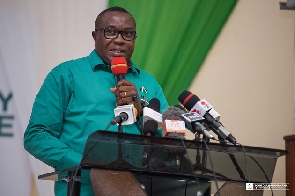: Fixing the Hitches
Decentralization is mainly seen as the devolution of central administrative authority, resources
and responsibilities to local level institutions towards improving the living conditions of those
away from the central authority. It normally ensures fair, balanced and orderly development of
the whole country. Decentralization therefore is crucial to rural areas and their development
because they are those mostly catered for by this machinery. This underscores its importance
and the need for it to be incorporated in every country’s development policies. However, its
importance lies greatly on its efficacy.
To outline why decentralization has been very important especially in contemporary
development policy, firstly, decentralization is a tool of empowerment for rural people to
participate meaningfully in the decision making and development planning process of the
entire nation that may affect them directly or indirectly. Useful public participation at all levels
of decision making provides a foundation for democratic and responsive governance whilst
providing communities with insight about the entire national development direction.
Secondly, effective decentralization reduces the absolute reliance of rural people on central
government for funds by harnessing community efforts and local resources, as and when
necessary, for local development. It is increasingly recognized that development success
depends not only on efficient central government but also on a vibrant private sector and
vigorous citizen participation. The realization of this by rural people will leverage policy makers
enough space to focus on more strategic issues. Unfortunately Ghana’s decentralization is yet
to recognize the resourcefulness of rural folks and the power therein that can be harness for an
inclusive growth.
In addition, decentralization promotes dialogue between policy makers and rural people which
gives first-hand information to policy makers about the basic and most pressing needs of the
people and their thoughts on how to address them.
One outstanding importance of decentralization actually lies on communal and local ownership
of projects and progammes. In current sustainability debates it has become clear that one best
approach to ensuring the sustenance and security of projects--after the pull-out of technocrats
and policy makers--is harnessing local level involvement that inculcates the spirit of ownership
in them. It therefore remains critical that Ghana works on her decentralization machinery to
improve local participation as a policy tool to promote sustainability of projects.
The hitches that need fixing
From the foregoing, it is clear that Ghana stands to gain much from her current decentralization
system. However, various hitches exist that makes these benefits unreachable for the country.
Firstly, for constructive dialogue, education is necessary. Basic literacy level can have far
reaching impact on local people’s ability to participate constructively. The country must
therefore put ahead of all priorities education and the development of a knowledge-based
economy which has the greater potential to close the current gap between our economic
growth and demographic expansion.
Also, partisanship and pettiness has over-engulfed the current decentralization system. This
makes it polarized and ineffective in addressing genuine concerns of the people. It is only in
sanitizing the system of its current plethora of partisanship that the decentralization machinery
of the country can work.
Page 2 of 2
Finally, building a national spirit of ownership of public institutions is critical. Even though the
local level institutions exist, few people utilize them. there is need to ignite in local populace
and especially rural people a sense of ownership of governance to put local institutions on their
toes to promote accountability and transparency in the current decentralization machinery.
Only in addressing these among other supportive issues could we have a well-functioning
decentralization system and harness all the benefits thereof.
The Author, Anzagra Ziema Bertrand, is in the Faculty of Integrated Development Studies of the University for
Development Studies, Wa, Ghana-W.Africa. Email: anzagraz@gmail.com












